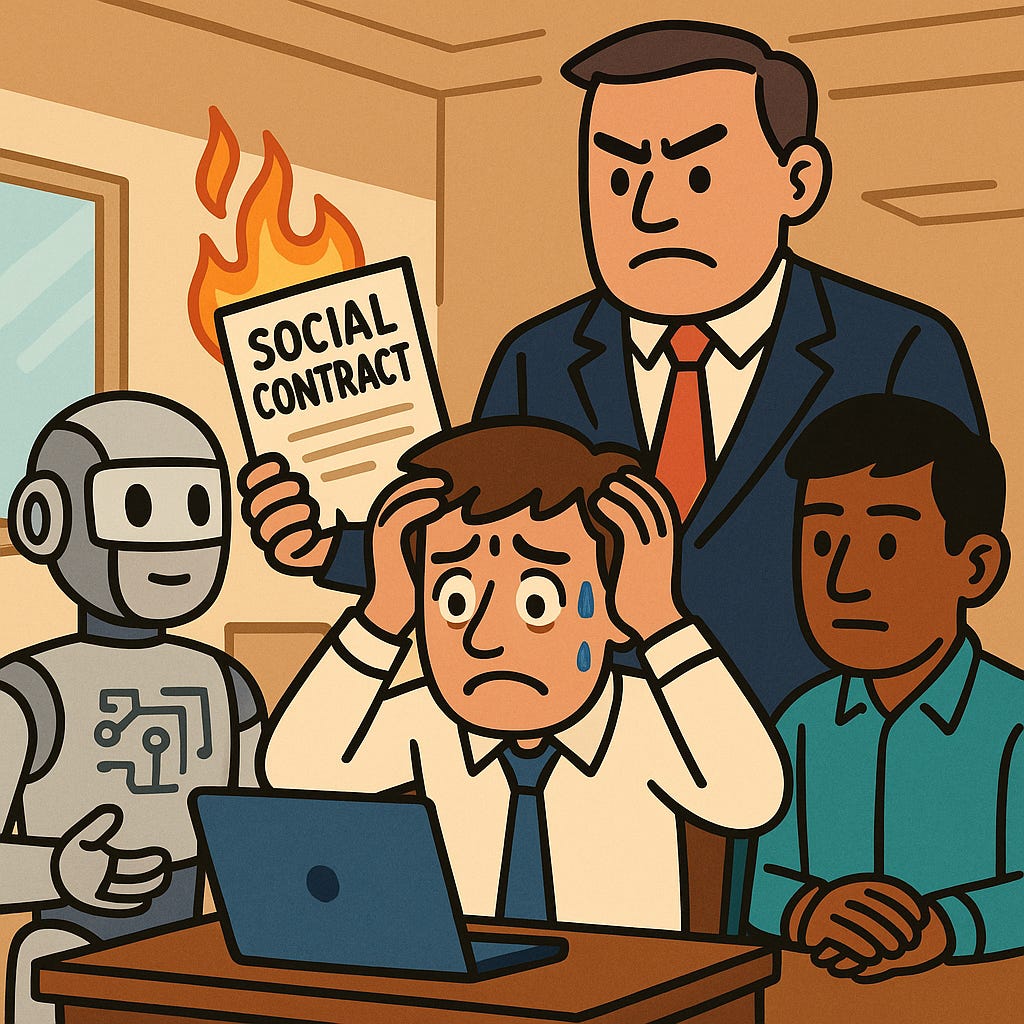What "Quiet Quitting" Says About Modern American Work Culture
It's not what I thought it was.
When I first heard the term “quiet quitting,” I assumed it was when an employee stopped showing up to work and did not tell anyone they were quitting. That would be pretty obnoxious for an employer and all the other employees who suddenly have to pick up work or handle bureaucratic documentation.
It turns out that is not the essence of quiet quitting. Investopedia says, “Quiet quitting refers to doing the minimum requirements of one's job and putting in no more time, effort, or enthusiasm than absolutely necessary.” That does not sound like quitting of any kind. It sounds like doing your job.
Fulfilling your responsibilities as an employee is regarded as a form of quitting, reflecting a shift in American work culture influenced by deeper cultural and technological transformations.
An employee/employer relationship is a contractual relationship. The employee signs a document that they will perform X activity, possibly over a given period, for Y amount of money. Employees fulfill their duty to their employer by performing X activity, and the employer pays them Y. This is close to the Platonic form of a modern job. So, why is it described as quitting?
Life is not purely contractual. A marriage is (or, at least, should be) more than the marriage contract filed with the state. Until we reach the blockchain anarcho-capitalist Nick Land paradise, most life will reside outside written contracts. Instead, the rules for behavior are “written” in a social contract, tacitly agreed upon by members of a social body.
Social contracts are not composed by lawyers and are filed with the court. They evolve through the interaction of individuals, sometimes across generations. A social contract is part of a shared culture. If a written agreement is breached, the guilty party must pay restitution to the injured party. If a social contract is breached, the guilty party is often ostracized from the group and forced to find a new group. The ape parts of our brain do not like losing the tribe, so we tend to stick to the social contract.
But what if many tribe members start violating some aspect of the social contract? When a part of the social contract is repeatedly breached, it must be written down and formally enforced. This is the case with many parts of the law. For example, do not strip off all of your clothes in public. This rule is not in the Constitution but in the books, presumably because enough people stripped off their clothes in public, and the magistrates had to write down some consequences for anyone else who dared try.
Social contracts rely on a certain degree of trust and mutual respect. My employment contract does not specify that I will refrain from making rude remarks to my coworkers, nor does it state that they will treat me the same, because that is part of the social contract. Once such behavior starts to seep into formally written contracts, we can deduce two things: 1. The written contract is becoming tyrannical, and 2. Something has gone amiss in the social body.
If one party begins to violate the mutual tacit agreement within the social contract, the other party has two options: either to violate in a way that benefits them or to try to formalize and enforce the violated aspect of the social contract. In an employer/employee relationship, the employee has more barriers to formalizing enforcement. Therefore, if the employer begins to violate their side of the social contract, the employee can only violate it in turn.
This is the essence of quiet quitting: employees feel their employers have either violated the social contract or can no longer trust their employees to honor it. In response, the employee withdraws from the social contract entirely and falls back on the letter of the written agreement.
The social contract between an employer and employee typically states that the employee will go above and beyond expectations for the sake of the mission and look for ways to improve the company. In return, the employer will have a reasonable opinion of them, leading to pleasant interactions, more freedom in the workplace, bonuses, and maybe even a promotion.
Why do employees feel like their employers have violated the social contract?



